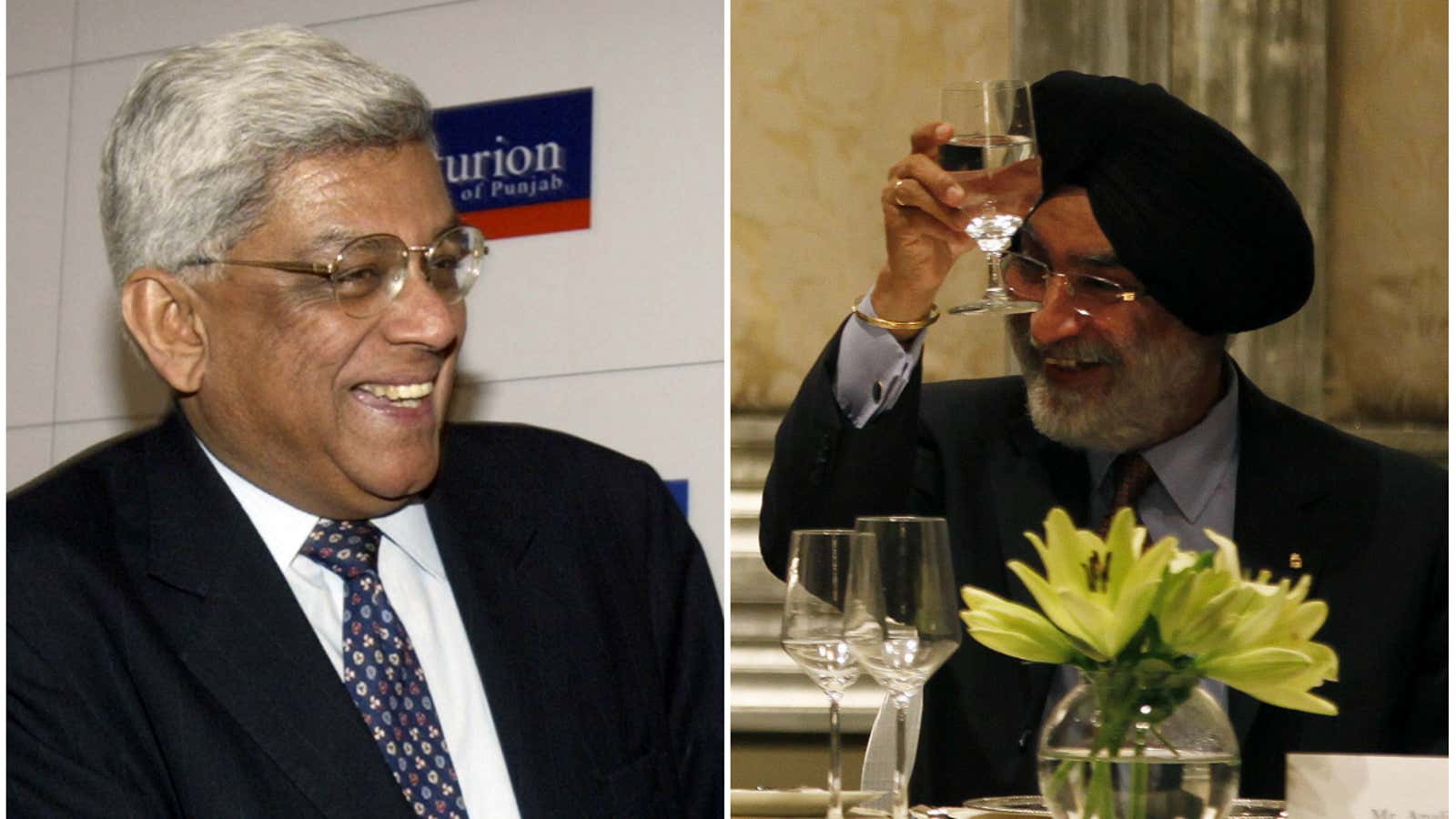Deepak Parekh and Analjit Singh have known each other for three decades.
A renowned banker, Parekh is credited with building India’s most valuable lender, HDFC Bank, over the past 22 years. Singh is the quintessential businessman who has dabbled in businesses ranging from healthcare to insurance and telecom, among others. While 71-year-old Parekh is among India’s most influential people, Singh, 62, is one the country’s richest men with a net worth of over $975 million.
On Aug. 08, the duo came together to add another dimension to their relationship.
They agreed to create what will be India’s biggest insurance company, estimated to be valued at $10 billion.
Their companies HDFC Standard Life Insurance Company—part of HDFC Ltd and India’s third-biggest private sector life insurer—and Max Life, the fourth-largest, have agreed to merge over the next 12 months.
The new company will be known as HDFC Life and is expected to be listed on bourses soon.
“We will have many challenges on the way,” HDFC chairman Parekh had said on June 18 before the merger was announced. “I have known Analjit for 30 years. We have a trust factor. It didn’t take time. Hope it works out.”
The HDFC board agreed to the merger on Aug. 08. Currently, HDFC Standard Life Insurance and Max Life have a combined market share of 10.8%, while the industry is dominated by the state-owned Life Insurance Corporation (LIC). LIC isn’t listed so its exact market value is uncertain.
The deal, for which talks began in June 2016, will see HDFC Standard Life shareholders—mortgage lender HDFC, Britain’s Standard Life Plc, and others—owning 69% of the new company, while Max Life shareholders will get 31%.
What the deal means
Max Life will be merged with its parent company, Max Financial Services, which in turn will merge with HDFC Life.
Max Financial Services is already listed, and the combined entity would then be automatically listed. The merged entity will then “command a valuation” of over Rs 65,000 crore, HDFC Life managing director and chief executive Amitabh Chaudhary told reporters on Aug. 08.
Max Life’s promoter, Analjit Singh, will also receive a hefty payout of Rs850 crore as part of a non-compete fee over the next four years. “The proposed transaction brings together two large life insurance players with complementary capabilities,” HDFC Ltd said in a press release (pdf) on Aug.08.
“This deal creates one of the strongest life insurers in India, which has the ability to gain market share over time,” Santosh Singh, head of research at Shanghai-based Haitong Securities, said. “In my opinion, both the companies and their shareholders are going to benefit as it significantly strengthens the distribution and helps them provide insurance solutions at the reduced cost.”
In Asia’s third-largest economy, with a population of over 1.3 billion people, over 80% of the people don’t have access to any health insurance. India accounts for less than 1.5% of the world’s total insurance premiums despite being the second-most populous nation.
“Currently, the general insurance penetration in India is only 0.8% and life (insurance) is 3.2% of GDP,” consultancy firm KPMG said in a report. However, it expects the industry to be worth $400 billion by 2020.
It also helps that the Narendra Modi government relaxed foreign direct investment (FDI) norms for the sector this March. Of the 52 insurance companies in India, 24 provide life insurance while 28 provide general insurance.
“We see structural changes in the life insurance business over the coming years,” Analjit Singh said on Aug.08. KPMG also anticipates a big consolidation in India’s over $60-billion insurance market.
“The market was expecting some consolidation, but basically the expectation was one of the smaller companies, one or two smaller companies will get with some of the bigger private sector players,” SB Mathur, a former chairman of LIC, said. ”This is a welcome surprise.”




